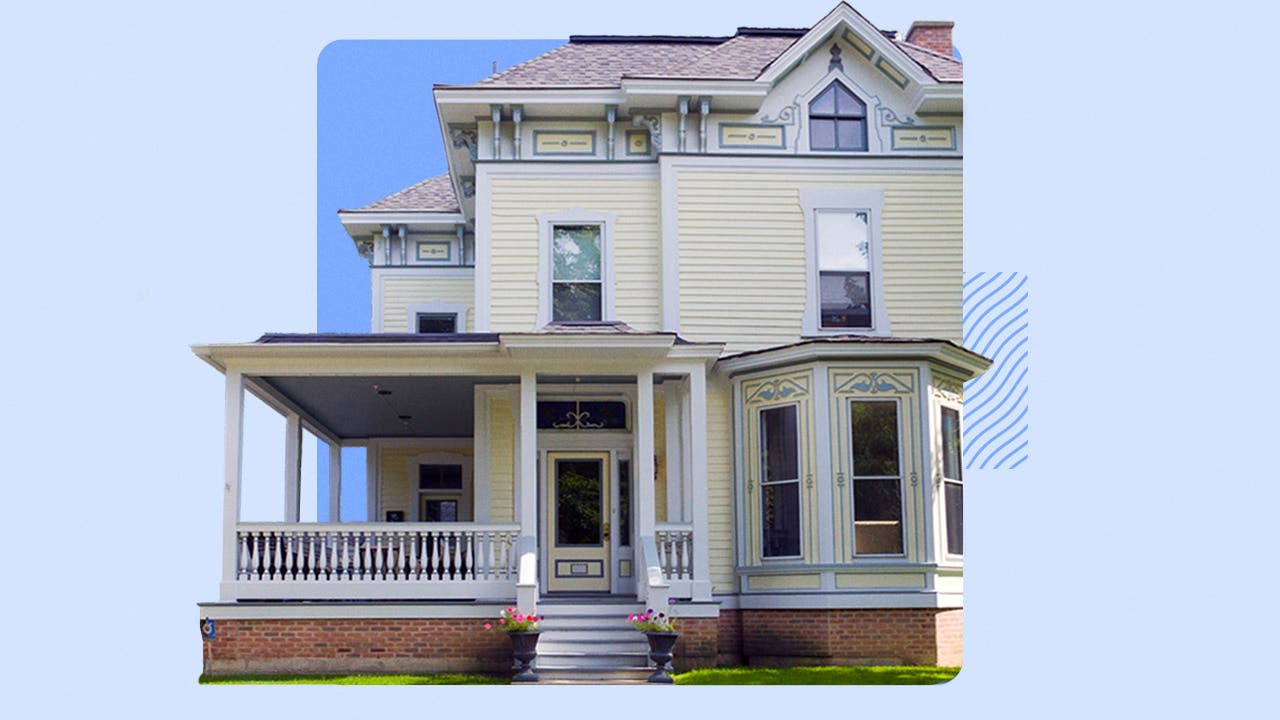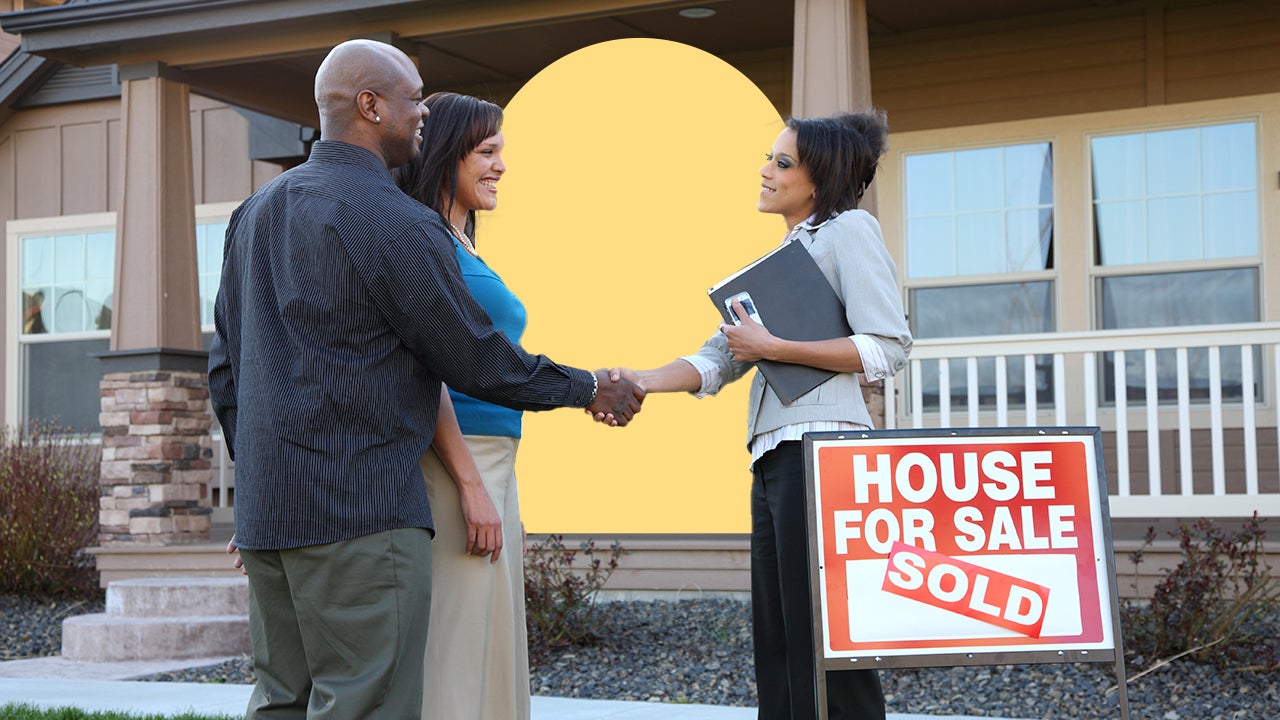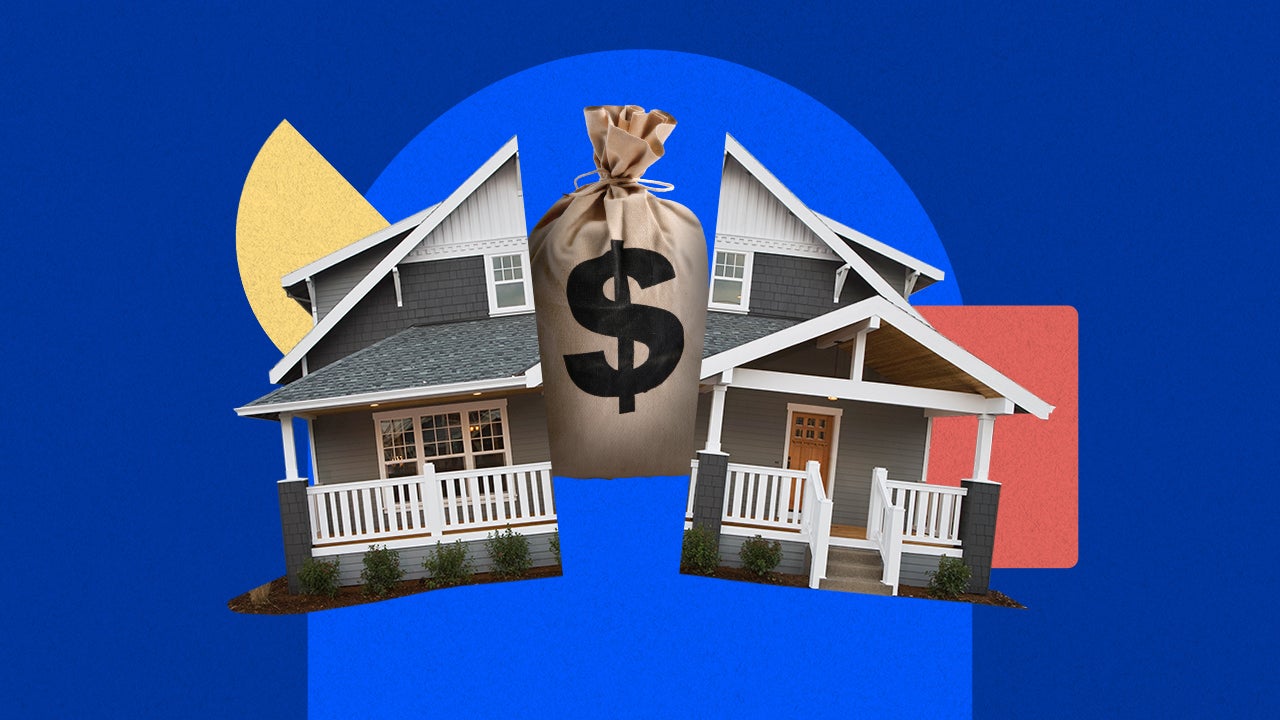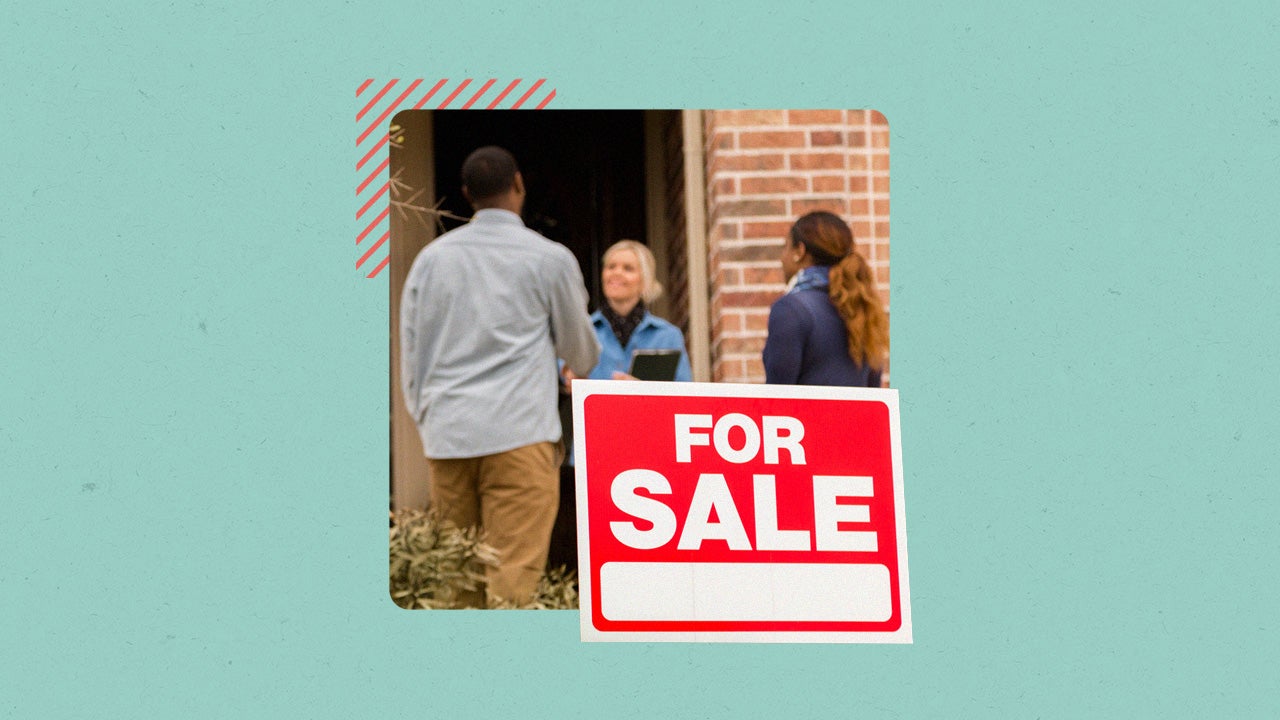Buying a historic house




Our writers and editors used an in-house natural language generation platform to assist with portions of this article, allowing them to focus on adding information that is uniquely helpful. The article was reviewed, fact-checked and edited by our editorial staff prior to publication.
Key takeaways
- Typically, a property must be at least 50 years old to be considered historic. It must also meet certain criteria related to its historical significance.
- Historic homes could be eligible for tax credits or incentives, but they may also require extensive renovation and maintenance.
- Homes within government-protected historic districts may be subject to strict rules regarding upkeep, renovation and more.
Have you been eyeing a grand Federal-style home in Savannah, Georgia, an architecturally significant townhouse in Philadelphia, or perhaps a midcentury modern with a famed backstory in Palm Springs, California?
Buying a historic house can be a rewarding experience. But it comes with its own set of challenges and considerations, and owning a piece of history is not a decision to be taken lightly. Here’s what to consider before buying a historic house with a rich past.
What is a historic house?
Homes must meet specific criteria to be officially recognized as historic and worthy of preservation. The National Park Service maintains the National Register of Historic Places, which evaluates properties based on age, integrity and significance to recognize certain sites, structures or entire districts that are linked to national history.
To be recognized as a historic property, a home typically must meet at least one of the following criteria:
- Be at least 50 years old (though there are some exceptions)
- Represent a specific architectural style, retaining a high degree of original character
- Be associated with significant historical events or individuals
A home may also be located within a designated historic district, even if it is not on the Historic Register itself. In addition, local historic-preservation rules and criteria may differ — a property might qualify for local historic designation even if it does not on the national level.
Is buying a historic home right for you?
When considering buying a historic home, it’s important to ask yourself why you want to own it. While some historically designated properties may come with tax benefits, the ideal buyer should prize the story and architecture of the home. If you’re just looking for financial incentives, you may want to adjust your expectations: Older homes can be a lot of work, and the upkeep isn’t likely to be cheap. If you have no interest in honoring the history of the property and keeping its memory alive, or if you want to modernize the home once you buy it, it might be smarter to look elsewhere.
Buy a historic home if you want to:
- Preserve the character: Owning a historically significant home makes you a steward of its history. You’re responsible for preserving it for future generations, and its quirks should be treated with respect — even if they’re inconvenient, like small rooms or undulating wood floors. That’s all part of the charm, and part of what makes the home significant.
- Adhere to specific guidelines: You’ll need to familiarize yourself with the local jurisdiction, because some towns or preservation offices will have specific pre-set guidelines that dictate the modifications you can make to a historically designated home. Review boards may look at everything from exterior design and architectural detail changes to paint color, siding material, window style, roofing and more — similar to the rules of a homeowners association. Some historic districts have minimal oversight, while others have strict reviews to ensure architectural compatibility and historical sensitivity.
- Share your home with others: One thing that makes a historic home special is that it is part of a greater story. Pride of ownership means a lot, as does sharing that pride with the community. Many historic homeowners use their property for the local philanthropic good by periodically hosting fundraisers, open houses or tours.
Don’t buy a historic home if you want to:
- Renovate the history out of it: If you love a modern aesthetic and open floor plans, that’s the kind of home you should buy. Don’t treat a historic home like a fixer-upper that you can transform into something else.
- Modify it without restrictions: Modernizing or upgrading a historic home can be tricky, as there might be tight limits on what you’re permitted to change. Depending on your location, there could be a city ordinance, for example, saying that you must restore wood sash windows instead of replacing them — and don’t even think about adding big picture windows, sliding doors or skylights.
- Avoid meticulous upkeep: Owning a historic home doesn’t have to take over your life, but it will likely cost you both time and money. Local jurisdiction may require that you maintain the exterior on a more rigid schedule than you’d like, for example, and an architect or lawyer may need to get involved in order to get approval for certain modifications. However, it can be very enriching to uncover your home’s history and understand its construction as you maintain it.
Financial considerations of buying a historic home
Pros
There are both federal and state tax credits that may benefit historic homeowners. The federal tax credit for historic preservation and rehabilitation offers a credit for 20 percent of qualifying costs on a historic project. The credit must be taken over five years. Do your research and take advantage of whatever financial incentives are available, such as tax-reduction programs or low-interest home improvement loans for historic properties.
According to a 2022 report from the National Park Service, 37 states offer additional tax incentives for rehabilitating historic buildings. Check with your state’s historic preservation office for more details: Some states offer additional credits to homeowners if the property is income-producing, and some offer more credits for particular types of properties, such as a mill or a barn. Consult with a qualified tax professional to see what you might be eligible for.
Cons
Hidden issues may be present in any older property, and in one with historic designation, they can be both trickier and pricier to fix. Any construction, restoration or renovation work done in a historic home is typically more expensive than in a similar non-historic home and may require specialized craftsmen. The cost of insuring a historic property is often higher as well.
It’s crucial to include an inspection contingency clause in your purchase agreement and hire a home inspector who specializes in older, historic homes. Familiarize yourself with the local historic-rehab regulations in your area, as well, and allocate a healthy budget for regular maintenance expenses.
And while you might think a historic property will be worth more due to its significance, assessing value can be complicated. A house connected to a beloved historical figure may have a higher market value than one connected with someone infamous, for example. Home appraisers may also consider things like whether the home is stigmatized — such as if locals commonly believe the house to be haunted. (Long-standing reputations can be hard to change, though notoriety can be considered a plus in some circumstances.)
Getting a mortgage loan for a historic home
It may be a bit more challenging to get a mortgage loan for a historic home than for a typical home, but it is certainly not impossible.
If the house needs work, look into FHA 203(k) loans, which allow for borrowing money to both buy the house and make needed repairs at once. You may also hear these called “mortgage rehab loans.” The Department of Housing and Urban Development (HUD) also offers Title I property improvement loans, which can be used in conjunction with 203(k) loans. If you qualify, this can help keep renovation costs down.
Lenders may require additional loan guarantees or information about older homes, says the National Trust for Historic Preservation, such as information about any deed restrictions or historic-designation regulations. And older homes may not meet the specifications for typical VA or FHA loans. In addition, the home appraisal process may be tricky if a home is unique and there are no real comparables to base market value on.
But overall, getting financing for a historic home should not be terribly different than it would for any other home.
Bottom line
Buying a historic home can be very rewarding, especially for homeowners who are proud of their community’s heritage and feel honored to keep its memory alive. But old homes will almost certainly cost more to maintain, and depending on the level of historic designation, there may be very strict rules surrounding what you are and are not permitted to change or upgrade. When you tour the house, take note of its quirks and consider whether you can live with them — and, if not, whether local restrictions would allow you to change them. Be sure you understand what you’re getting into, and can afford the upkeep, before you buy a historic property.
Why we ask for feedback Your feedback helps us improve our content and services. It takes less than a minute to complete.
Your responses are anonymous and will only be used for improving our website.




